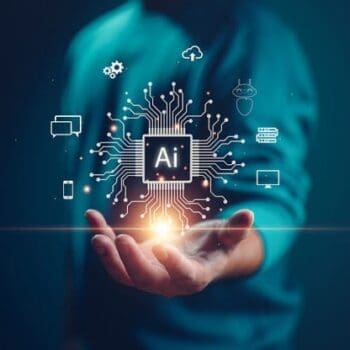 Artificial intelligence (AI) has a key role to play in the future of hospitality businesses by helping operators provide better service to their customers – not by replacing people, but by dealing with specific issues in a more efficient and time-saving way.
Artificial intelligence (AI) has a key role to play in the future of hospitality businesses by helping operators provide better service to their customers – not by replacing people, but by dealing with specific issues in a more efficient and time-saving way.
It’s important that we de-mystify AI and examine how it can be of benefit to our sector, rather than view it as a robotic service that takes the people out of service.
AI, the creation of machines or software that can perform tasks that normally require human intelligence, such as learning, problem-solving and decision-making, comes in many forms including via text with chatbots and automatic emails, via voice assistants and speech recognition systems, with gesture technology such as the use of touchscreens and gesture-based inputs, and via physical devices such as robotics, as well as the combination of these.
There is an innate fear of AI. People see it as replacing jobs but rather than replacing people it is helping by dealing with problems that businesses don’t have the resources to deal with themselves. Artificial Narrow Intelligence, the level of AI that is currently being utilised, is designed to complete tasks that a human can do, but it needs data, training and guard rails. It doesn’t replace people, but allows them to focus on other areas of the business.
AI can be used in hospitality to enhance the customer experience in a number of ways, she said, such as the use of voice assistants to answer calls, texts or messages, take bookings and answer a variety of queries from consumers such as directions to the restaurant, queries on the menu and where best to park. The technology can also be used to optimise food production and the supply chain such as the use of an AI-driven camera that ensures consistency as food leaves the kitchen by comparing it to images and ‘learning’ what is required.
AI can assist with the personalisation of service by using data such as customer order history and favourite menu items to help tailor the experience to individual customer tastes. A feedback mechanism can then allow customers to provide feedback through voice or text, which the AI will then ‘learn’ to improve future interactions and recommendations.
We can use AI to reduce the time and cost of training staff, for marketing, forecasting and to improve operational efficiencies, such as not only alerting when fridge temperatures are reaching thresholds, but also using historical data to predict when they require maintenance – solving the problem, before it becomes a problem.
It’s an exciting area of development, particularly in hospitality but we have to strike the right balance between human-driven services and AI-powered interactions to create an exceptional guest experience.



















